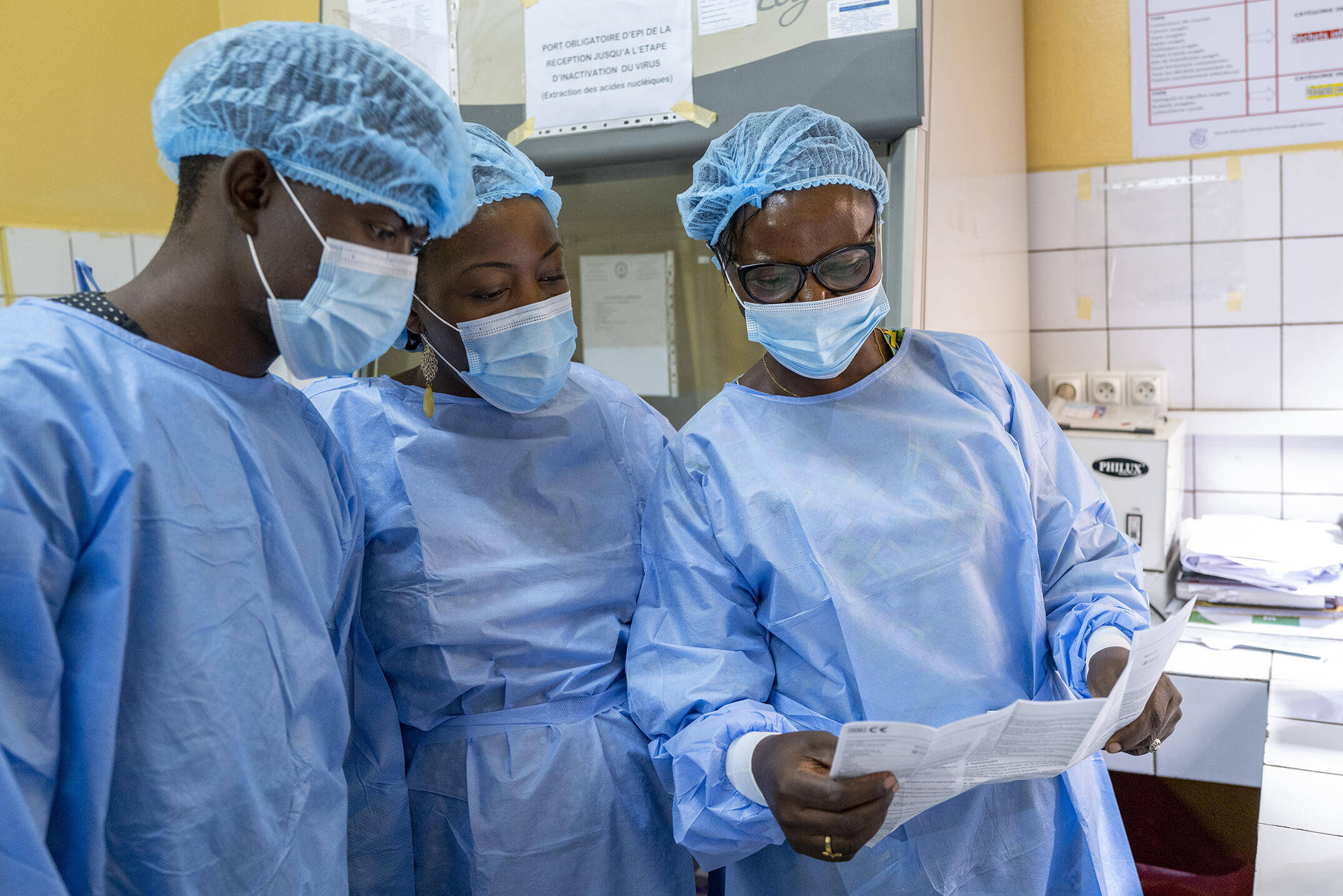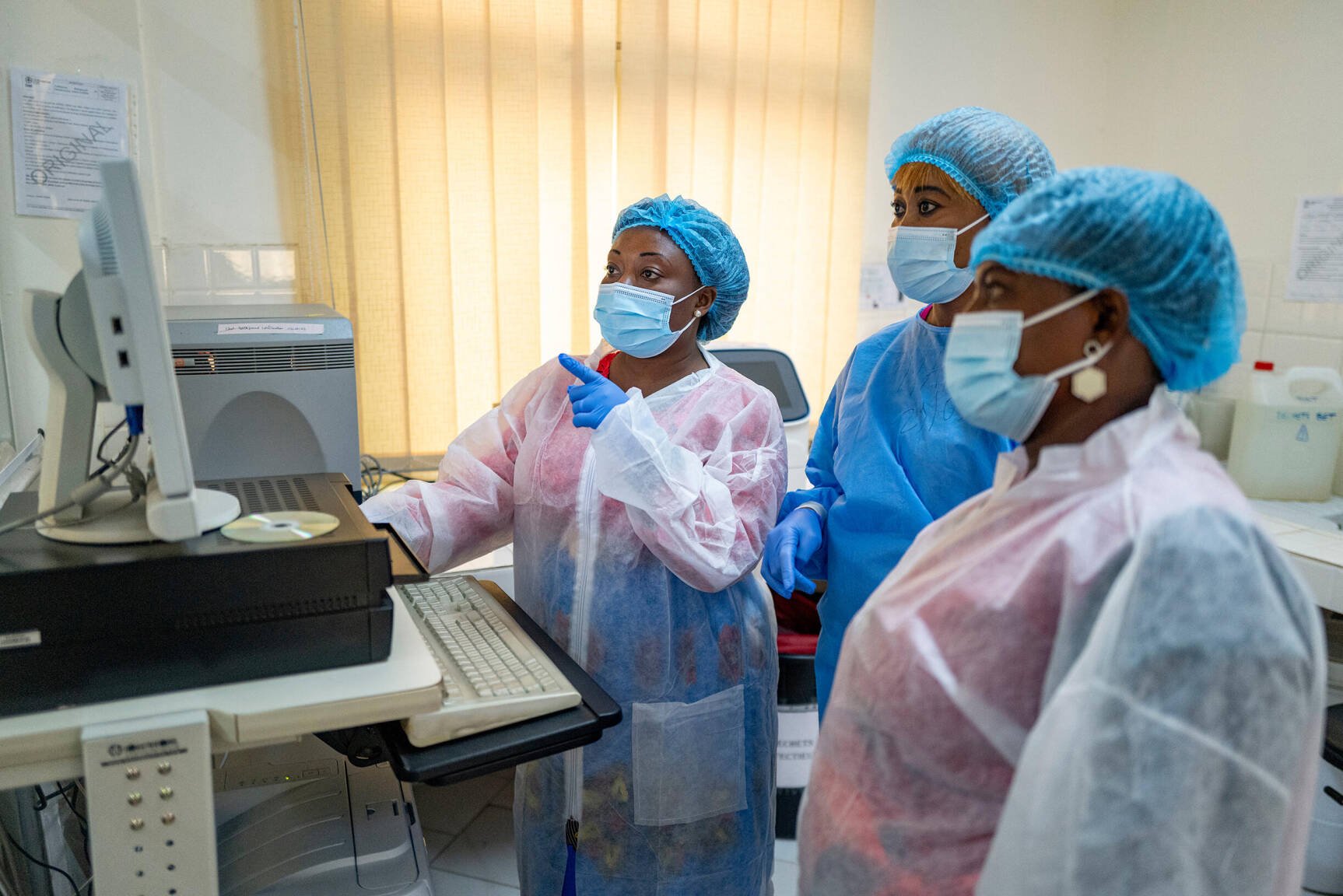
scroll down
Professor Vivi Maketa has been assessing whether ultra-sensitive rapid diagnostic tests could ensure pregnant women are better protected against malaria.

In a trial in the Democratic Republic of the Congo (DRC), this strategy was found to be non-inferior to IPTp – cases of asymptomatic parasitaemia during pregnancy were not significantly higher in the test-and-treat group. There were no significant differences in outcomes for either mother or child, suggesting that it is also as safe as conventional IPTp.
The test-and-treat approach is highly dependent on the sensitivity of the RDT. In this first field trial in the DRC, the ultrasensitive RDTs showed only a marginal improvement on standard RDTs. Overall, the study has demonstrated that the test-and-treat approach is a potential option for malaria control in pregnant women, but needs careful evaluation and studies of cost-effectiveness.
Alongside this project, Professor Maketa has also made contributions to multiple other studies in the DRC. These have included work on the mpox outbreak in the DRC and studies of Ebola vaccination.
Malaria poses a particular threat to pregnant women, affecting both maternal health and the risk of adverse birth outcomes. An estimated 125 million women are at risk of malaria in pregnancy each year.
The cornerstone of malaria prevention in pregnancy is intermittent preventive treatment during pregnancy (IPTp), where women are given antimalarial drugs at various points during their pregnancy, to prevent infection. However, resistance to the main drug used in IPTp, sulfadoxine–pyrimethamine, is encouraging the search for alternative approaches.
Recently, ultrasensitive malaria rapid diagnostic tests (RDTs) have been developed, which can detect very low levels of parasitaemia (important in pregnancy, where parasites are sequestered in the placenta). In her Career Development Fellowship, Professor Vivi Maketa has been exploring whether use of these ultrasensitive RDTs could be combined with an artemisinin combination therapy (ACT), pyronaridine–artesunate, in a ‘test-and-treat’ strategy. This would not require an antimalarial drug to be given to all pregnant women, reducing selection pressures driving the development of drug resistance.
Targeted detection of malaria in pregnancy